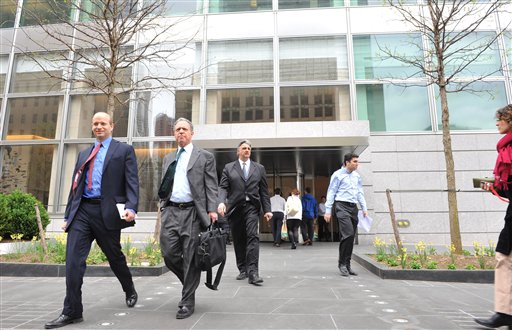No Wall Street firm dominates forever -- just ask the former employees at Drexel Burnham Lambert
[This story first appeared in Crain's New York Business, a sister publication of InvestmentNews.com]
Within hours of the announcement that the Securities and Exchange Commission had filed fraud charges against Goldman Sachs, one of the most knowledgeable analysts of the securities industry issued a report confirming his bullish outperform rating.
I have talked to some traders on Wall Street, not fans of Goldman, and they don't agree. They can put themselves in the shoes of the Goldman clients who bought the mortgage-backed investment vehicle designed to lose money. One told me, "Goldman always has an angle you don't know about.''
The bullish Goldman case is clearly articulated by Brad Hintz from Bernstein Research. He examined the financial risk to Goldman from the charges and possible civil suits filed by those who lost money on the mortgage bond at the heart of the SEC case. His conclusion is that the firm's return on equity could be reduced by 16% to 17%.
Such a decline pales against the strength of the firm. As Mr. Hintz explains, "Goldman is the largest, most successful institutional trading firm on Wall Street. Given the firm's public position that nothing has changed in its business strategy, the company has both the strength, global positioning and the will to deploy its resources and profit from slowly improving economic conditions."
The bearish case as reflected in the media coverage so far has centered on how draconian the investigation will be and whether the news will help Democrats enact financial reforms that will curtail Goldman's profit making activities. Both could hurt, but the real damage is whether Goldman's clients believe the firm is taking advantage of them too.
To weigh these two possibilities, I checked back on the coverage of the demise of Drexel Burnham Lambert, which in the 1980s became the fifth-largest investment banking firm in the country on Michael Milken's junk-bond business. In 1986, the firm found itself in the govrnment's crosshairs after the arrest of arbitrager and client Ivan Boesky on insider trading charges.
In late December, The New York Times published a story much like Mr. Hintz report.
"Drexel Keeping Its Grip on the Junk Bond Market,'' read the headline.
The key paragraph went like this: "With the Securities and Exchange Commission's investigation of arbitrager Ivan F. Boesky and his relationship to Drexel Burnham Lambert Inc., other investment bankers - always quick to seize opportunities -have stepped up their efforts to loosen Drexel's grip on the business it pioneered. Drexel commands nearly half of the market for high-yield bonds.'' Despite those efforts, the Times said, Drexel continued to dominate the junk bond business.
The investigation took its toll eventually and Drexel filed for bankruptcy in February 1990 and then disappeared.
Remember, Goldman wasn't always the king of Wall Street. Salomon Brothers occupied that spot in the mid 1980s because it was the best at the bond business at a time when bonds were where the money was. Eventually, the bond market rally ran its course, and the firm because ensnared in a Treasury scandal, which hurt it deeply.
No firm dominates Wall Street forever. Goldman won't lose its position tomorrow, but its future is now clearly uncertain.







